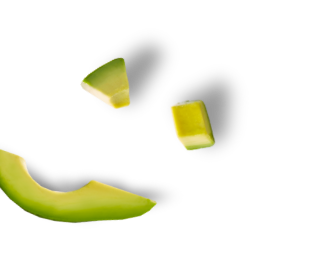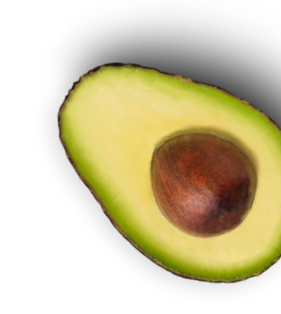Mexico’s Commitment to Food Safety in the Avocado Orchard and Beyond

In partnership with the USDA and Mexico’s Secretariat of Agriculture and Rural Development (SADER), APEAM developed a comprehensive control program to ensure the quality and food safety of Mexican avocados.
The Association of Avocado Exporting Producers and Packers of Mexico (APEAM) represents 84 packing houses and 34,000 growers across 42,000 orchards in 39 municipalities of Michoacan — that’s a lot of avocados.
What Does APEAM Do?
As the only Mexican business partner of the United States for the export of avocados, APEAM has an important responsibility when it comes to ensuring the quality of each and every avocado that is grown, harvested, packed, and exported to the U.S.
At the forefront of that responsibility is the guiding principle of food safety. To make sure all avocados are clean, safe, and of the highest possible quality, APEAM takes great care in protecting their produce through every step of the supply chain to meet the consumer’s expectations.
Not every orchard in Michoacan is qualified to export its fruit, so APEAM takes great care in helping to curate the orchards that are. APEAM maintains carefully choreographed relationships with many food safety authorities, including the USDA, SADER, and SENASICA. Together, their cooperation facilitates stringent food safety practices and compliance with national and international laws in every orchard. This guarantees that every avocado is produced safely, sustainably, and ethically.
Achieving that level of quality involves thorough recordkeeping, traceability, cooperation with local authorities, and training all growers and packers on the food safety standards. This attention to detail ensures that any Mexican avocado that crosses the Mexican border is:
- Originated from an export-certified orchard and grower
- Free of pests, disease, or harmful pesticides
- Grown in the best farming and harvesting conditions
- In compliance with national and international laws and authorities
FSMA Compliance
Because these orchards eventually export their avocados, a key element of APEAM’s health procedures hinge on complying with the 2011 Food Safety Modernization Act (FSMA). To support the producers and packers, APEAM provides trainings that elaborate on the high-sanitation standards of the FSMA. Doing so helps to minimize the threat of potential pests and microorganisms that can damage avocados and avocado trees, protecting domestic growers from disease and preventing the exportation of any infected fruit.
The training program was created by APEAM in tandem with the USDA, FDA, and Cornell University. All 42,000 avocado-exporting orchards in Michoacán must comply with the food safety standards, sanitation guidelines, and safety trainings. This cooperation ensures proper adherence with local agricultural law.
Producers Avocado producers and packers can receive certifications on:
- The list of FDA-approved and sustainable pesticides permitted to be used in orchards
- General practices on hygiene, sanitization, and disinfectant practices
- Responsible farming and harvesting conditions, including soil irrigation and drainage
- Orchard inspection strategies
- National and international phytosanitary laws
To broaden members’ access to this important information, APEAM released an app in 2018 named Inocuidad APEAM (APEAM Food Safety, in English). The app was designed to provide growers and packers with streamlined access to the organization’s guidelines, FSMA law, and video tutorials on general safety practices. It also allows the producers and packers to consult with specialists, attend virtual workshops, and listen to webinars given over the course of each season.
Transparency Through Track and Trace
The vast majority of avocado producers do not harvest their own fruit. Instead, producers sell their avocados directly to the packers. The packers then send a third-party picking crew to harvest the avocados and transport them to the packing house. But with 42,000 orchards and 84 packing houses to oversee, how does APEAM streamline this process while guaranteeing all the food safety and quality requirements?
Every Mexican avocado undergoes a lifetime of surveillance to guarantee the highest possible quality and proper food safety.
The solution is found in APEAM’s advanced traceability process. Traceability is a method of following the path of each individual exported avocado — whether at the packing house or at the consumer’s dining room table, every avocado can be tracked back to the exact orchard in Mexico in which it was grown, and the date and time of day it was picked from the tree. It’s an intricate process, consisting of thorough digital recordkeeping along the entire production, packing, and logistics chain.
The Traceability Process
Step 1: Certification for Export
-
i. Avocado growers who wish to export their fruit must have their orchards registered and certified by SADER and the USDA officers in Mexico.
SADER is the Mexican Secretariat of Agriculture and Rural Development. They are the authority on food safety across Mexico.
-
ii. Local food safety inspectors called Las Juntas inspect the orchard, checking for pests, diseases, and compliance with local food safety laws.
Las Juntas are 19 autonomous local boards of avocado producers who inspect orchards in all 39 avocado-producing municipalities of Michoacán. They operate as an auxiliary agency of SADER.
-
iii. USDA technicians verify that the orchard meets U.S. food safety requirements, that the orchard is properly fenced off, and that there are no invasive weeds or pests.
The United States Department of Agriculture (USDA) guarantees that all Mexican avocados meet U.S. food safety standards and legal requirements before they enter the country.
-
iv. If the orchard meets all of these requirements, the request for export certification is approved.
Step 2: Registration in SICOA
-
i. Certified avocado producers are then registered in a comprehensive database called SICOA. The registration is done by their local Las Juntas inspector.
SICOA, in English, is the Avocado Harvest Information System. Only export-certified orchards are registered in this database. It was introduced by APEAM in 2008.
-
ii. Local Juntas review and mark which orchards are approved and ready for harvest.
Step 3: Selling to Packers
-
i. Packers access the SICOA log to learn which export-certified orchards have avocados that are ready for harvest.
-
ii. The packer and producer then negotiate on price, payment terms, time of harvest, and the volume of avocados desired.
Step 4: The Harvest
-
i. The packers then send a third-party picking crew to the orchard. SENASICA technicians supervise the entire process.
SENASICA is the National Service for Agricultural Food Safety, Health, and Quality in Mexico.
-
ii. The details of every harvest are documented in an official harvest log called BICO.
BICO is a digital logbook that validates and records food safety controls and inspections. It is approved by SADER and the USDA, managed by APEAM, and issued by Las Juntas.
Step 5: Labeling the Produce
- i. Each crate of avocados is labeled and sealed with a BICO sticker. The sticker displays BICO information and data on:
- i. The municipality and orchard of origin
- ii. Date and time of harvest
- iii. Quantity of shipment
- iv. All certified food safety inspections
- ii. These stickers display QR codes to reinforce certainty in the avocado production chain. A quick scan of these codes will provide immediate access to the BICO information and record.
- iii. The crates are loaded onto a truck that will ship the avocados to the packing house. The truck’s door is sealed with the same BICO sticker and will not be broken until it reaches its destination.
Step 6: The Packing House
-
i. When the avocados arrive at the packing house, a food safety specialist (approved by SENASICA) performs a sampling test on the avocados, confirming that the shipment meets all the proper quality and safety standards.
Learn more about the sampling test here.
-
ii. Each individual avocado is then labeled with a miniature BICO sticker of its own.
-
iii. The packers use a program called SICFI to record, track, and trace avocados when they leave the packing house to its final destination abroad.
SICFI stands for the System for International Food Safety Certificates. It was implemented in avocado packing houses in 2012.
-
iv. A USDA-authorized food safety officer then issues a certificate for each container.
-
v. The avocados are finally ready for export.
Technology and Transparency Improvements Over the Years
When the traceability process was initiated in 2005, it consisted of APEAM manually documenting each batch of produce. Over the years, the traceability process has been enhanced by a variety of technological improvements. These improvements help the process become more reliable, accurate, and transparent.
Comprehensive System of International Phytosanitary Certificates (SICFI)
SICFI was implemented in 2012 to be used by the logistics teams at the packing houses. It enables quick access to detailed data of shipments, such as the size and quality of the fruit, the number of boxes, the orchard where it was harvested, and name of the orchard owner. Today it’s being used in countries like the U.S., Canada, Japan, China, and Chile to trace imported avocados back to their Mexican origin.
Georeferenced Information Systems (GIS)
In 2015, SICOA was augmented with a georeferenced information system (GIS). The upgrade allows for immediate statistical analysis by showing the geographical location of certified orchards and allows packers to search by orchard production levels, surface area, municipality, state, season of harvest, quality of fruit, and more.
The Gesvatec System
The most recent step in improving avocado traceability was the integration of the Gesvatec system in 2020. This online tool provides APEAM with high-resolution satellite surveillance of orchards, avocado pickers, and vehicles during their shipping routes. The goal is to ensure that only certified individuals are involved with the process, thus achieving greater transparency throughout the avocado’s production and journey.
Together, APEAM, the USDA, SADER, and SENASICA have collaborated to strengthen and modernize the traceability of avocados and ensure safe, sanitary, and ethical practices. Through the traceability process, U.S. consumers of Mexican avocados can be comfortable knowing that their fruit is clean, safe, and of the highest caliber. And at home in Michoacán, the growers and packers can rely on APEAM’s commitment to safety and quality to help them grow some of the best avocados in the world.










